The Top Ten Champions of the ATP World Tour Finals
For men’s tennis, the season is a long one—starting in January and ending in early December with the Davis Cup finals. The ATP, however, ends its year with the World Tour Finals which get underway on Sunday.
The tournament is the crowning event of the 2011 season where the top eight man do battle to determine the champion of the champions.
The World Tour Finals is the latest title for the ATP year-end tournament for men’s professional tennis to be held in London for the second consecutive year.
The Masters year-end tournament, first played in 1970, features the top eight players on the men’s tour selected based on accumulated calendar year ATP ranking points. The top eight men draw to create two teams with members of each four-man team competing with each other in three round-robin matches.
This year in Group A are Novak Djokovic, Andy Murray, David Ferrer and Tomas Berdych. In Group B we find Rafael Nadal, Roger Federer, Jo-Wilfried Tsonga and Mardy Fish.
From each group, the two players with the best results move onto the semifinals where the top-ranked player from each group plays the second-ranked player from the other group.
The final is contested by the winners of the semifinal contests. The winner of that match is accorded 1500 ranking points as well as the honor and prestige of winning in a field of the best eight players in the world.
Last year Roger Federer faced Rafael Nadal in the final which Federer won 6-3, 3-6, 6-1— giving the Swiss his fifth title in this event. That ties Federer with Pete Sampras and Ivan Lendl at five championship titles at the ATP year-end tournament.
So in the 41 years the championships have been held, who are the multiple winners of this event? Who reigned as the best of the best at the end of the season?
We will count them down here.
No. 10 – (Tie) Stan Smith, Stefan Edberg and Nikolay Davydenko (1 win, 2 finals)
Three players tied for the No. 10 spot on this listing—each reached the finals twice, but won the event only one time.
Stan Smith won the ATP Masters in 1970—the first year of the championship when the format was a little different. There were only six selected to play with the winner decided by round robin play. That first year Smith and Rod Laver each held a 4-1 record but since Smith had defeated Laver earlier, the American was awarded the championshio. In 1972, with the eight-man format in place, Smith faced the Romanian Ilie Nastase, losing 6-3, 6-3, 3-6, 2-6, 6-3.
The Swede Stefan Edberg won the year-end championship in 1989 by defeating German Boris Becker in the final 4-6, 7-6, 6-3, 6-1. Making his way back into the finals in 1990, Edberg lost to American Andre Agassi 5-7, 7-6, 7-5, 6-2. The tournament that year was played in Frankfurt, Germany.
Russian Nikolay Davydenko capped off an amazing year in 2009 by defeating Juan Martin del Potro 6-3, 6-4 in the final after having dispatched Roger Federer in the semifinals. In 2008 Davydenko reached the finals but lost to Novak Djokovic 6-1, 7-5.
No. 9 – Andre Agassi (1 Win, 4 Finals)
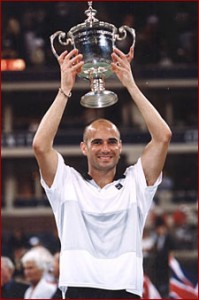 No one qualified for more year-end championships than No. 9 Andre Agassi. He appeared for the first time in the tournament in 1988 at age 18 when the event was still contested at Madison Square Garden in New York City.
No one qualified for more year-end championships than No. 9 Andre Agassi. He appeared for the first time in the tournament in 1988 at age 18 when the event was still contested at Madison Square Garden in New York City.
His last appearance came in 2003 when the city of Houston hosted the event.
During his years competing, Agassi battled his way into four finals, securing his only title over Sweden’s Stefan Edberg in 1990 when the event moved to Frankfurt, Germany.
It was another hard-fought contest, with the American coming out on top 5-7, 7-6, 7-5, 6-2.
Agassi’s three losses came at the hands of perennial rival Pete Sampras in 1999, and then against Gustavo Kuerten in 2000.
Agassi lost in the final to Roger Federer in 2003, which also marked the American’s last appearance in the event.
Agassi is ranked No. 1 for most years qualified at 14. He is also 6th on the list of all-time match winners with a record of 22-20.
No. 8 – Lleyton Hewitt (2 Wins, 3 Finals)
Lleyton Hewitt appeared in three year-end championships, winning twice.
Hewitt won back-to-back championships in 2001 and 2002 at the height of his power during his years of being ranked the No. 1 player in the world.
The Aussie finally lost his foothold on the top spot completely after he made his last final in 2004, losing to Roger Federer.
After 2004, Hewitt never made the elite 8 field again.
In total he qualified for four year-end tournaments, participating in his first in 2000.
Lleyton Hewitt is one of three men in the history of the event to win the championship undefeated. He accomplished that in 2001.
Hewitt also ranks sixth in best winning percentage at .722 with a 13-5 record.
He remains seventh on the list of title winners tied with Bjorn Borg.
N0. 7 – Bjorn Borg (2 Wins, 4 Finals)
During his all-too-brief career, No. 7 Bjorn Borg appeared in four Masters Year-End Championships, winning twice and losing twice.
The Swede won in back-to-back years in 1979-1980.
Borg first defeated American Vitas Gerulaitis and followed that the following year by taking the title from Ivan Lendl in straight sets.
Borg lost in 1975 and 1977 to Ilie Nastase and Jimmy Connors respectively.
Borg is ranked tenth along with Guillermo Vilas for all-time match wins with a record of 16-7, giving him a winning percentage .696 which ranks as eighth best.
Borg along with Lleyton Hewitt ranks seventh in the list of title leaders.
No. 6 – John McEnroe (3 Wins, 4 Finals)
McEnroe won his first Masters Grand Prix title in 1978 as a teenager, defeating fellow American Arthur Ashe in straight sets.
In 1982, after once again reaching the finals, McEnroe went down in defeat to the Czech Ivan Lendl 6-4, 6-4, 6-2 in a straight-set loss.
But the feisty American would come back strong in 1983 and 1984.
McEnroe exacted revenge by defeating Lendl in two consecutive finals, both in straight sets before the rowdy New York crowds.
McEnroe is seventh in all-time match wins with a record of 19-11. The American owned a winning percentage of .633, which ranks 10th best of all-time.
He is tied for fifth place with Boris Becker in title wins with three.
McEnroe is tied with Stefan Edberg for 7th place in qualifying for the year-end tournament having appeared 9 times.
Also, McEnroe remains one of seven men who won this championship in consecutive years.
No. 5 – Boris Becker (3 Wins, 8 Finals)
Boris Becker remarkably appeared in eight finals, winning three times.
Twice he ended as runner-up to Ivan Lendl and twice more he fell to eventual champion Pete Sampras.
His other loss came at the hands of Sweden’s Stefan Edberg.
Becker did defeat Lendl in 1988 in a five set thriller which marked Lendl’s last appearance in the finals of this Masters season-ending championship. It was Becker’s first win after being turned away twice by the man who owned Madison Square Garden, Lendl.
Becker also defeated Jim Courier in 1992 for his second championship and Michael Chang in 1995 for the German’s third and final championship in this event.
Becker is tied for fourth with Stan Smith for most consecutive final appearances at three.
The German also ranks second behind Lendl for all time match wins with a record of 36-3, which lands him in fifth place for best winning percentage at .735.
Becker is also in fifth place tied with John McEnroe with three title wins.
The very competitive Becker is tied for third along with Jimmy Connors and Pete Sampras for most years qualifying for the championship at 11.
No. 4 – Ilie Nastase (4 Wins, 5 Finals)
Holding Down the No. 4 spot is Ilie Nastase. Nastase appeared in five consecutive finals from 1971-1975, winning four of them––although the format changed after 1971.
In the first two years, the winner was determined from a shorter field strictly out of the round robin format––which Nastase won in 1971.
1972 in Barcelona, Nastase defeated American Stan Smith in a hard-fought five-set final in the first true Masters championship match 6-3, 6-2, 3-6, 2-6, 6-3.
In 1973 Nastase repeated as champion for the third year in a row by defeating Tom Okker 6-3, 7-5, 4-6, 6-3.
Nastase along with Ivan Lendl won three championships consecutively. They remain the only two champions to accomplish that feat. In 1974, however, Nastase lost in the final in another five-set masterpiece to Guillermo Vilas 7-6, 6-2, 3-6, 3-6, 6-4. It marked the only time Vilas won the championship.
The next year Nastase returned to take out teenager Bjorn Borg in the final 6-2, 6-2, 6-1.
Nastase ranks fifth in all-time match wins with a 23-3. His winning percentage, however, is No. 1 at .885.
With 4 total titles, Nastase comes in behind Lendl, Sampras and Federer who have won the title 5 times each.
Nastase and Federer are also tied for second place with most consecutive finals at five. They trail only Lendl who has nine.
No. 1 – (Tie) Pete Sampras (5 Wins, 6 Finals)
Pete Sampras won five championships – then called ATP World Tour Championships in the 1990s.
The American won in 1991, 1994, 1996, 1997 and 1999. Sampras was the runner-up in 1993. In all he appeared in the WTC finals 6 times.
In 1991, Sampras defeated fellow American Jim Courier in four sets to win his first year-end championship.
It took Sampras four sets in 1994 to turn away Boris Becker and claim the trophy again. In 1996, however, Pistol Pete had to go the distance in five thrilling sets to defeat Becker who was defending his 1995 championship win.
Sampras’ last two wins were in straight sets, in 1997 over Yevgeny Kafelnikov 6-3, 6-2, 6-2 and in 1999 over Andre Agassi 6-1, 7-5, 6-4.
1999 marked Sampras’ last appearance in the finals of this event.
Sampras ranks third in all-time match wins with a 35-14 record, giving him the seventh best winning percentage at .714.
He is tied with Lendl and Federer for the most titles at five. Sampras also qualified for the the year-end tournament 11 times.
He remains one of seven men to win the title in consecutive years.
No. 1 – (Tie) Roger Federer (5 Wins, 6 Finals)
Tied for the No. 1 spot, Roger Federer is one of four active players on this list.
Federer dominated this tournament, appearing in five consecutive finals from 2003-2007 and winning four of them.
Federer’s first win at the Masters Cup Final came in 2003 against a man who seemed to own men’s tennis––Andre Agassi–6-3, 6-0, 6-4 in a rain-interrupted final in Houston.
His second win came against the man he replaced at the top of men’s tennis, Lleyton Hewitt. A soggy, rain-delayed final in Houston necessitated that the traditional five set final be reduced to three so the event could conclude on Sunday. Federer defeated Hewitt 6-3-6-2.
In Shanghai in 2005, David Nalbandian defeated Federer in a five-set marathon after Federer won the first two sets––6-7, 6-7, 6-2, 6-1, 7-6. The Argentine prided himself on defeating Federer since their junior years when Nalbandian found the means to win over Federer regularly. In this match, the Swiss simply ran out of gas when Nalbandian refused to go away. It remains one of their greatest finals.
Federer came back to win consecutive finals in Shanghai in 2006 and 2007, defeating James Blake and David Ferrer respectively in straight sets.
In 2010, Federer returned to the winner’s circle, defeating Rafael Nadal 6-3, 3-6, 6-1 in the final to take the ATP year-end trophy for a fifth time.
To date Federer ranks fourth in all time match wins at 34-7 with the No. 2 ranking in winning percentage at .829.
Federer is tied with Pete Sampras and Ivan Lendl for number of titles with five and stands sixth in years qualifying with nine appearances. The Swiss has earned an appearance in the tournament from 2002-2010.
Federer is one of three men who won the tournament without a defeat. While Michael Stich did it in 1993 and Lleyton Hewitt in 2001––Federer accomplished the feat four times in 2003, 2004, 2006 and 2010.
The Swiss along with Ivan Lendl has won back-to-back titles twice. He is tied with Nastase for second most consecutive finals at five.
The question for many is will Federer be able to win his sixth title in 2010?
No. 1 – (Tie) Ivan Lendl (5 Wins, 9 Finals)
Without a doubt, the king of the Master’s Year-End Tournament no matter its name or location was Ivan Lendl.
In fact, they should name the event after him since he appeared in the finals for most of the decade of the 1980s. Lendl appeared in nine finals, winning five of them in 1981, 1982, 1985, 1986, and 1987.
He was the runner up in 1980, 1983, 1984, and 1988.
It is an amazing record that seemingly no one will equal for a very long time, if ever––all taking place in New York City in Madison Square Garden where Lendl made himself at home.
His most thrilling final came in 1981 against American Vitas Gerulaitis. Lendl lost the first two sets, but came back to win in five 6-7, 2-6, 7-6, 6-2, 6-4. It marked the first time Lendl won the event.
The other down-to-the-wire finish occurred in 1988 when the Czech met Boris Becker in the final. In his last appearance in Madison Squared Garden, Lendl lost 5-7, 7-6, 3-6, 6-2, 7-6.
Lendl never again reached the final of this year-end tournament, then called the Master’s Grand Prix.
Lendl remains ranked No. 1 in match wins with a record of 39-10, giving him the third best winning percentage (.796).
Lendl is tied with Pete Sampras and Roger Federer for the most titles at five.
Qualifying 12 times, Lendl only trails Andre Agassi for the most appearances in the tournament.
Lendl is tied with Ilie Nastase for the most consecutive titles at three and leads the field in most consecutive final appearances at nine.
He is––so far––the best of the best in this season-ending Championship.
The World Tour Finals in 2011:
In forty-one years of contesting the year end championships, there have been only 8 men who have won the event multiple times.
It is very difficult to qualify for this event––let alone win it against a field comprised of the top-ranked players of the year.
Even being ranked No. 1 does not insure success.
For example, there are a dozen No 1 ranked men who have never won the year-end championships:
John Newcombe
Mats Wilander
Jim Courier
Thomas Muster
Marcelo Rios
Carlos Moya
Yevgeny Kafelnikov
Patrick Rafter
Marat Safin
Juan Carlos Ferrero
Andy Roddick
Rafael Nadal
Will a new-comer break out of the ranks and win this WTF Championship—like Andy Murray?
Perhaps Rafael Nadal will step up to win this tournament and add to his staggering accomplishments on the tennis court.
Will Novak Djokovic win his second title, moving into the list of multiple winners?
Or will Roger Federer win his sixth year-end championship, stretching him beyond Pete Sampras and Ivan Lendl?
The action starts on Sunday…
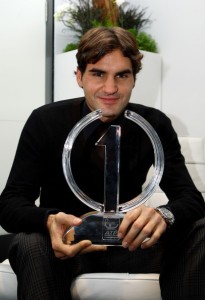
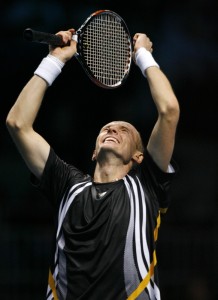
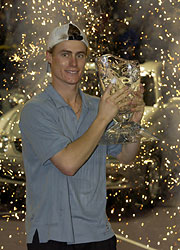
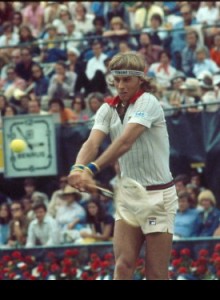
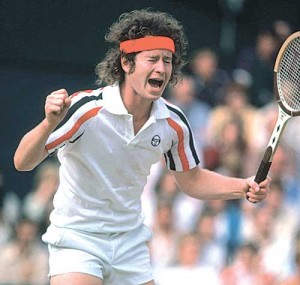
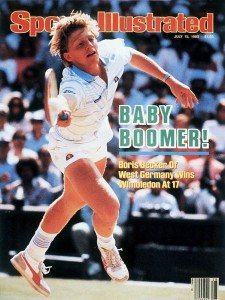
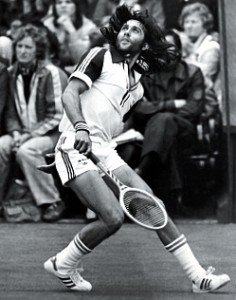
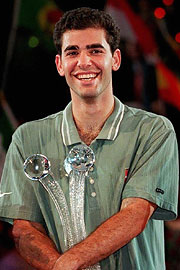
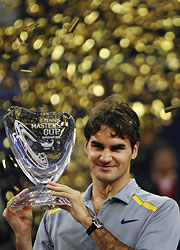
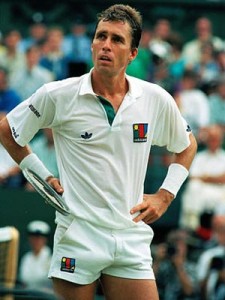
It will not help you to duplicate the same phrase on more than one page of your
site. However, they also provide you with consistent page results based on quality
search engine optimization India. The importance of adding new, quality content
to your blog or website cannot be overstated.
Hey there, You have done an incredible job. I will definitely digg it
and personally suggest too my friends. I’m sure
they’ll be benefited from this website.
This articles is great. I am very interesting in your blog.this blog is very useful nice information. Adel Le Barbier offrant des services de coiffeur professionnels à Laval, Québec. Mon objectif est de fournir la meilleur service. please visit this link barbershop in laval barbershop Montreal
I believe that is amongst the a great deal info personally. And i’m content understanding ones article.. learn Spanish But should really commentary about number of general things, The internet site tastes is a plus, your articles can be wonderful : Deborah. Perfectly work, many thanks
This article is great and informative. I am very interested in your blog. where I got windows 10 pro related article in your blog.